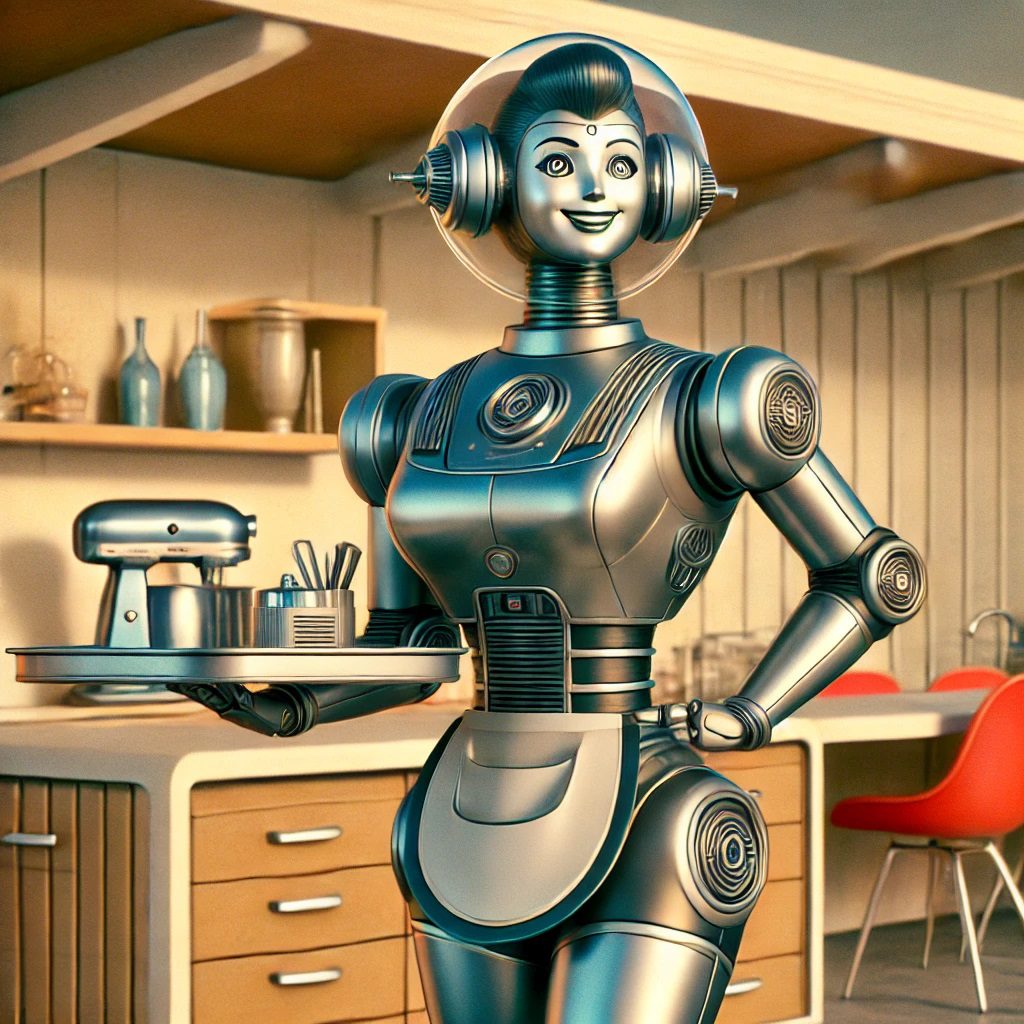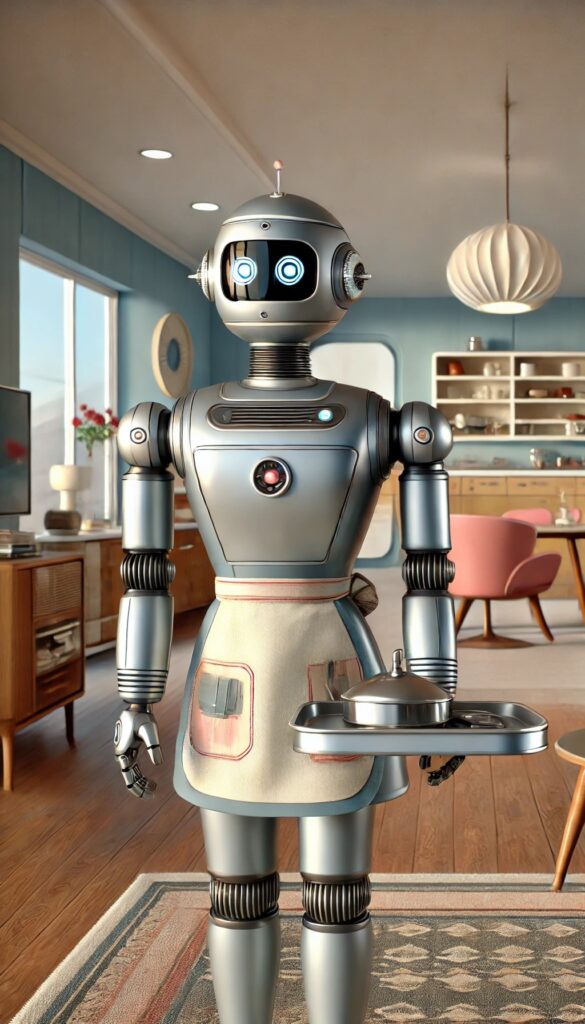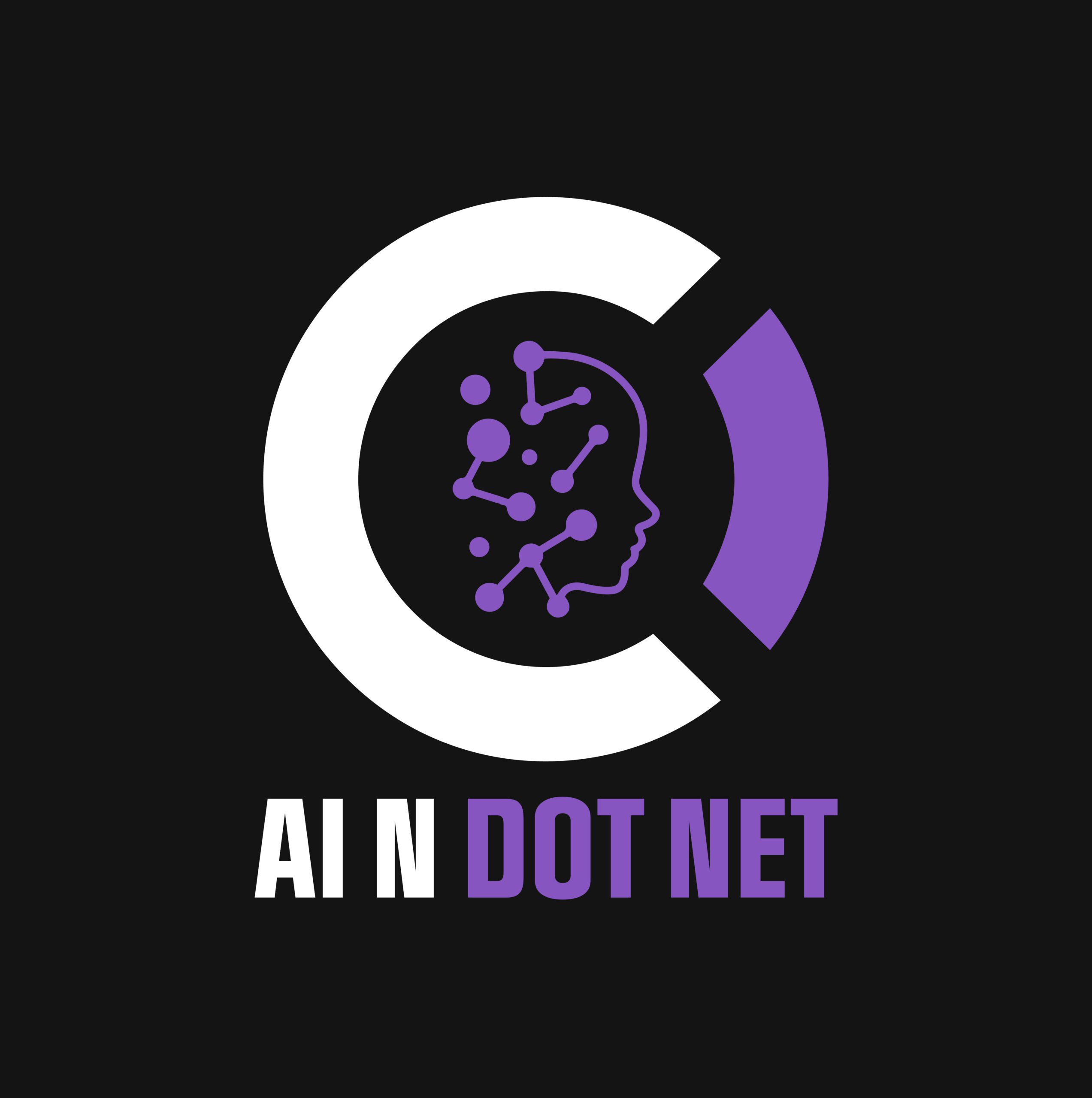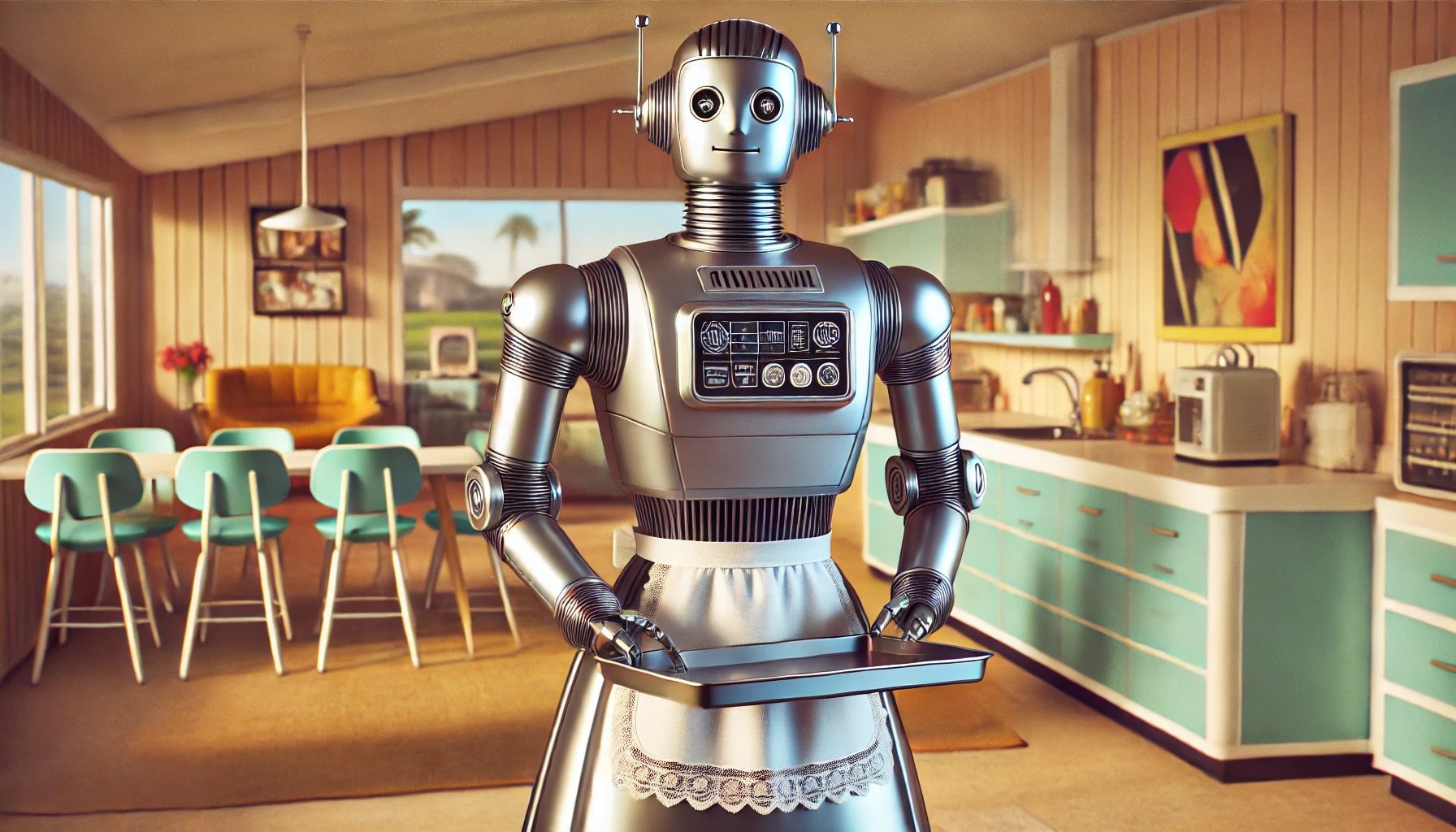Introduction
For decades, science fiction has painted a vision of the future filled with robotic assistants handling household chores. One of the most iconic examples is Rosey the Robot from The Jetsons, a humanoid housekeeper that could cook, clean, and even throw out witty remarks. While real-world automation has progressed significantly—most notably with the advent of robotic vacuum cleaners like the Roomba—fully autonomous household assistants have remained elusive.
That may be changing. Meta’s recent announcement of its investment in AI-powered humanoid robots for household chores signals a potential leap toward making the sci-fi dream a reality. Could we be on the brink of welcoming robots that do more than just vacuum? And if so, what does this mean for the future of AI in our homes?
The Evolution of Household Robots
Roomba and Early Automation: The First Step in Smart Home AI
The Roomba, introduced by iRobot in 2002, was a game-changer in household automation. It demonstrated how AI-powered devices could take over mundane tasks like vacuuming, freeing up time for their human owners. However, while the Roomba was a breakthrough, it was still limited in scope—it followed programmed behaviors rather than adapting dynamically to new chores.
Other robotic home assistants followed suit, such as mopping robots, lawn-mowing bots, and even AI-powered kitchen devices. However, none have approached the versatility or independence of a true household assistant akin to Rosey the Robot.
The Jetsons’ Dream: Rosey the Robot and the Future of AI-Powered Homes
When The Jetsons premiered in the 1960s, Rosey the Robot was depicted as a walking, talking, highly intelligent assistant who could manage an entire household. The challenge in reality has always been creating an AI-driven machine that can operate in a dynamic, unpredictable environment like a home. Vacuuming and mopping are repetitive and rule-based, but general household maintenance—like picking up toys, loading a dishwasher, or making a bed—requires advanced perception, reasoning, and dexterity.
The Rise of AI-Powered Humanoids: Smart Home Technology at the Next Level

Meta’s recent push into AI-driven humanoid robots aims to bridge this gap. Instead of task-specific robots, Meta envisions general-purpose humanoid robots that leverage AI and advanced robotics to perform a wide range of household duties.
Other companies are also moving in this direction:
- Tesla Optimus – Elon Musk’s humanoid robot, designed to handle mundane and potentially dangerous tasks.
- Figure AI – A startup focused on creating multi-functional humanoid robots for industrial and household use.
- AgiBot (China) – Developing humanoid assistants designed for both commercial and personal settings.
The key innovation behind these robots is AI-driven adaptability. Unlike Roombas, which follow pre-programmed cleaning paths, these robots use machine learning and sensors to navigate complex environments and adjust their actions accordingly. They could fold laundry one minute and unload groceries the next, all while engaging in simple voice interactions.
What This Means for the Future of Smart Homes and AI Assistants
The introduction of humanoid household robots could revolutionize domestic life in several ways:
Potential Benefits of AI-Powered Household Robots:
- Elderly and Disability Assistance – AI-powered robots could assist people with mobility issues, helping them live independently longer.
- Reduction of Household Labor – Time-consuming chores like cleaning, organizing, and cooking could be largely automated, freeing people to focus on work, hobbies, or family.
- Smart Home Integration – AI robots could work seamlessly with smart home systems, adjusting lighting, managing security, or preparing meals based on a homeowner’s routine.
Ethical and Practical Concerns of AI Assistants:

- Privacy Risks – A humanoid robot that interacts with a household must gather data to function properly. How will companies like Meta ensure user privacy?
- Affordability and Accessibility – Will these robots be affordable, or will they remain a luxury item for the wealthy?
- Job Displacement – If AI can handle household work, will this affect domestic workers and housekeepers?
Conclusion: Is the Future of AI-Powered Homes Finally Here?
For now, fully autonomous, AI-driven humanoid robots remain in development, but the industry is moving rapidly. With companies like Meta, Tesla, and others investing heavily in robotics, we may see the first commercially viable household assistants within the next decade.
The big question remains: Will these AI robots be as indispensable as Roombas, or will they be expensive, underutilized gimmicks? If they live up to their promise, we may finally have a real-world version of Rosey the Robot—minus the snarky attitude.
Either way, the age of humanoid household robots is approaching, and it’s only a matter of time before they become a part of daily life. Whether we embrace them or remain skeptical, one thing is certain: the future is getting closer to The Jetsons than ever before.
Want to stay ahead in applied AI?
Subscribe to our free newsletter for expert insights, AI trends, and practical implementation strategies for .NET professionals.
📑 Access Free AI Resources:
- Download our free AI whitepapers to explore cutting-edge AI applications in business.
- Check out our AI infographics for quick, digestible AI insights.
- 📖 Explore my books on AI and .NET to dive deeper into AI-driven development.
References
Meta Plans For New AI Humanoid Robot For “Household Chores”; Headline Fuels Stock Rally
Disclaimer
We are fully aware that these images contain misspelled words and inaccuracies. This is intentional.
These images were generated using AI, and we’ve included them as a reminder to always verify AI-generated content. Generative AI tools—whether for images, text, or code—are powerful but not perfect. They often produce incorrect details, including factual errors, hallucinated information, and spelling mistakes.
Our goal is to demonstrate that AI is a tool, not a substitute for critical thinking. Whether you’re using AI for research, content creation, or business applications, it’s crucial to review, refine, and fact-check everything before accepting it as accurate.
Lesson: Always double-check AI-generated outputs—because AI doesn’t know when it’s wrong! 🚀

